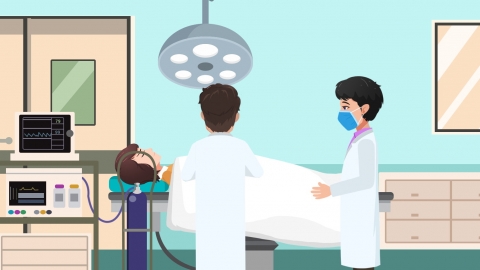Can gallstone pain be treated with surgery?
In general, whether surgery is appropriate for gallstone-related pain depends on a comprehensive assessment of the patient's specific condition, overall health status, and surgical risks. If discomfort occurs, it is recommended to seek medical attention promptly. The detailed analysis is as follows:

If gallstone pain frequently recurs, with each episode being severe and prolonged, and cannot be effectively relieved by medication, surgery may be considered—provided the patient is in good general health and has no major contraindications such as severe heart or lung disease, liver or kidney failure, and if the surgical risk is low. Timely surgery removes the diseased gallbladder, completely resolving the pain caused by stones and preventing recurrent episodes or complications such as cholecystitis and bile duct obstruction.
If the gallstone pain is a first-time occurrence, mild in intensity, and quickly relieved with medication, or if the patient is in poor general health with significant underlying diseases where surgical risks outweigh potential benefits, surgery is not recommended temporarily. In such cases, symptoms can initially be managed with medications, dietary adjustments, and close monitoring of disease progression. Surgery may be reconsidered later when the patient’s physical condition improves and surgical risks are reduced.
When pain occurs, prompt medical consultation is essential; do not self-administer painkillers, as this may mask the condition. After seeking care, actively cooperate with your doctor to evaluate your overall health and determine eligibility for surgery. Strictly follow medical advice regarding dietary adjustments before and after surgery, avoiding high-fat and high-cholesterol foods. If surgery is not immediately performed, regular follow-up exams are necessary to monitor stone size and gallbladder status, and any abnormalities should prompt immediate medical attention.




